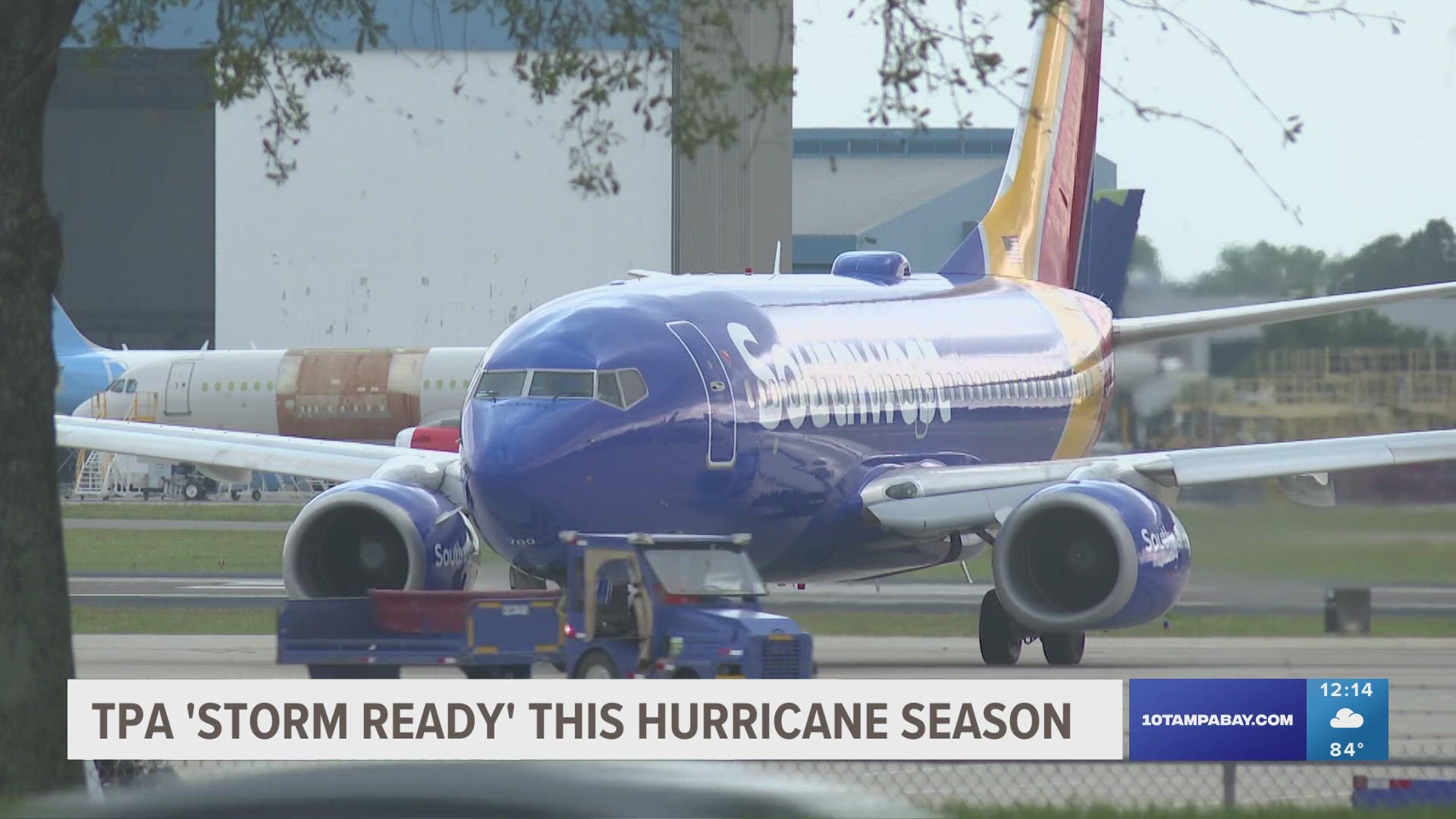TAMPA, Fla. — Officials at the Tampa International Airport are working with the National Weather Service to stay "storm ready" as forecasters predict an extremely active hurricane season.
John Tiliacos, the executive vice president of operations and community service at the airport, said at a news conference on Tuesday that they are constantly working with the National Weather Service's office in Ruskin to make sure the airport is prepared in case a hurricane hits the area. The airport is part of the weather service's StormReady program.
The airport's preparedness also gives the chance for airlines to let passengers know sooner if their flights are delayed or canceled. Tiliacos said if the airport were to suspend its operations, the companies would get the early heads to give staff a chance to prepare for the storm. Suspending operations would stop commercial flights and cargo operations.
Brian LaMarre, the meteorologist in charge of the National Weather Service in Tampa Bay, said this was the first airport in Florida to be StormReady. This means the weather service informs the airport about any possible storms, tornadoes or other weather-related events. The airport has multiple ways to get weather information from the weather service and multiple ways to disseminate that information to keep people safe. The airport goes through a renewal process every three years to earn this title.
“We work closely with the National Weather Service and Tampa International Airport to ensure that that communication system is running smoothly,” LaMarre said at the conference.
Tiliacos also shared some tips for passengers during hurricane season:
- Always check with your airline for the latest cancellations because the airport doesn’t control that
- The airport is not a hurricane shelter, so passengers won’t be able to stay there once the operations are suspended
- It's not a place to bring your cars or other vehicles because the parking lots will be closed
LaMarre stressed that this hurricane season is predicted to be an active one. Forecasters from the National Oceanic and Atmospheric Administration issued the highest pre-season outlook in its history in May.
For tips on how you can prepare for hurricane season click here.

